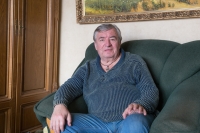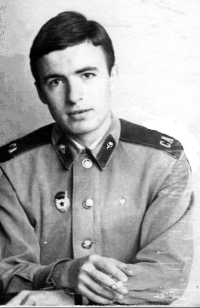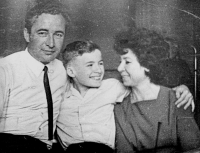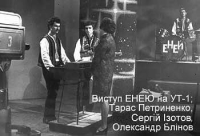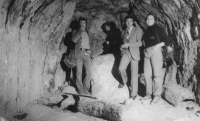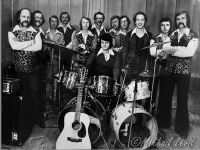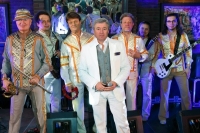“I had a pretty good knowledge of the English language. My father sent me to study from the age of six. I learned English with the teacher. And my mother took me to the Sofiiskyi Cathedral, to the Lavra, to museums, various icons... She had good knowledge of art. She would tell me about that. This way, my knowledge of the English language, some knowledge of icons, the ability to communicate with people, and the desire for profit all came together. I got to know people from Podil who painted icons similar to those from the 17th -18th centuries. At that time, in 1972, the “Lybid” hotel had just opened, and as they said, I was “capturing firms”, “recording firms”. Well, I met foreigners there, and I offered them icons, counterfeits. They paid in dollars. In 1972, I could tell which dollars were fake and which were not. I must say that at that time, if you had more than five dollars in your pocket, that was already a risk of being imprisoned. They could imprison you for having foreign currency. There was a separate article for contact with foreigners, by the KGB. The happiness didn't last long. I managed to buy some stuff, as they called them at that time, “foreign cats”. And those brigades began their work. I went to my father, who was working, let's say, in the security forces... I told him about the situation. He was shaving at that time. He said: “Well, what can I tell you, son? You're facing five or six charges. Two by the KGB, the others by the Ministry of Internal Affairs. They won't shoot you. They won't give you 15 years. Well, you'll get around 12 years. You're 18 now. You'll be released at 30. You'll have your whole life ahead. You'll get a job at some factory, a cable plant, as a third-grade locksmith. You'll marry a girl from the worsted combine. You'll get a room in a communal apartment. First, you'll buy a fridge on installment, then a TV. You'll live like regular people. Everything will be fine. What do you want from me?” He was a colonel at that time and was about to receive the rank of general in the nearest future... I said: “Dad, I'm not worried about myself, I'm worried about you” – “Why would you worry about me?” – “Well, I'll say in court that I learned English with your, let's say, blessing. Thanks to Mom, I know all the charms of Old Slavic. So, not only will you not become a major general, you won't even become a major”.
It was the first blackmail in my life. On the one hand, it hit the mark because I didn't end up in prison, but on the other hand, it missed the mark because I swept away all the cobwebs from the ceiling with my backside. It was the first and last time he gave me such a “slap”.
And within three days, while the case involved 47 or 48 individuals, I was sent to the urban-type settlement Desna, the Fourth Separate Airborne Engineering Battalion. Special Forces”.

